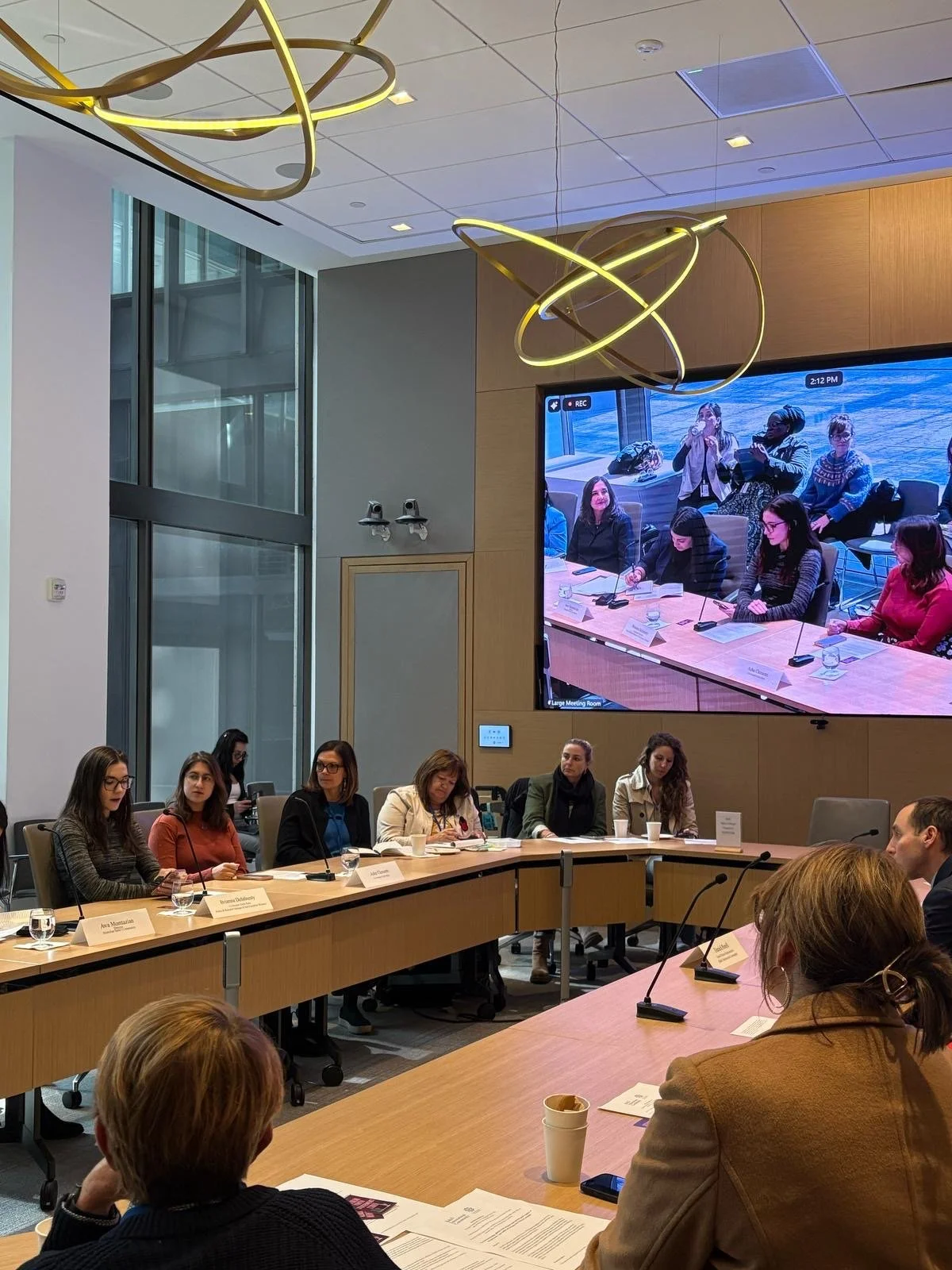The UN Commission on the Status of Women
In 2025, the Persephone Network (then called Girls Run) created the first Australian Youth Statement to UN CSW. This Statement captured the voices of young people across the country and translated their asks into concrete language for the negotiated text at CSW69. The Statement was presented to the Australian Government Delegation by Girls Run’s Youth Delegation. Five young women attended CSW at the United Nations in New York and advocated for the inclusion of young people’s voices in the Government’s negotiating position.
Founded in 1946, the United Nation’s Commission on the Status of Women is an annual event held at UN Headquarters in New York. This gathering includes global leaders, governmental representatives, NGOs, campaigners, and civil society representatives. Each year, the Commission discusses a range of gender equality issues with a focus on two themes - a priority theme and a review theme. In 2026, at CSW70, the themes will focus on access to justice and participation in decision-making.
Contribute to the next Youth Statement
Share your voice through our youth survey - a powerful way to influence Australia's position at CSW70. Your insights will be combined with roundtable discussions to create a comprehensive youth statement that represents young Australians on the international stage. Help us amplify youth voices by completing and sharing the survey with your networks. The themes for the 70th session, held in 2026, are:
Priority theme: Ensuring and strengthening access to justice for all women and girls, including by promoting inclusive and equitable legal systems, eliminating discriminatory laws, policies, and practices, and addressing structural barriers
Review theme: Women’s full and effective participation and decision making in public life, as well as the elimination of violence, for achieving gender equality and the empowerment of all women and girls
The survey will be closed at 11:59pm on Sunday the 23rd of November 2025
FAQs about CSW
Let us know if we’ve missed your question and we’ll add it to this page!
-
Being on the ground in New York is no doubt one of the most chaotic experiences with some incredible highs and certainly some lows. Thousands of government and civil society delegates descend on UN headquarters for the two week period with over 1000 events happening during that time. The full Commission consists of the official governmental negotiations, side events (hosted by governments), and parallel events (held by NGOs, usually at a separate location near the UN).
The primary output for most Commissions (with the exception of review years but those only happen every 5 years) is for governments to negotiate and create a document called the Agreed Conclusions. This document focuses on the priority and review theme set for the year but also covers lots of aspects of gender equality. They are often not very long documents so precise language is incredibly important. The Agreed Conclusions also have to be adopted by total consensus and even one member-state disagreeing can prevent the whole thing from passing.
-
Australia has very strong participation at CSW in both the government and civil society spheres. You can read more about the history of Australia’s engagement here. Every year, an official Australian Government delegation is sent, often consisting of Parliamentarians, senior public servants, and several civil society representatives. The Government Delegation advocates for Australia’s gender equality priorities and participates in the official negotiations on the Agreed Conclusions.
Outside of the Government Delegation, there are often a number of representatives from different civil society organisations. These representatives attend and host events, provide support for each other on the ground, and liaise with the Government Delegation.
-
Language is incredibly important at CSW and at any international policy event. It is a crucial tool for advocacy and even small tweaks in phrasing can have a massive impact on meaning. The Equality Right Alliance put together this brilliant primer on language advocacy at CSW that we would highly recommend!
-
Civil society refers to non-governmental representatives - often those from NGOs (like us!), civic groups, faith-based organisations, and community groups to name a few. They play a really important role in representing the views of different groups and their presence at the UN is crucial. At CSW, civil society representation is massive and there is a really strong community of representatives. Civil society is not allowed into the official negotiations (that is only for governmental representatives) but they often spend time working with the government reps, hosting and attending events, and creating global networks and coalitions.
-
The Australian Youth Statement to CSW is an initiative of The Persephone Network (Girls Run the World’s umbrella organisation) that aims to bring Australian youth voices to CSW. The process starts with a nationwide survey of young people which is used to identify key priorities and issues. The results of that survey are then used to craft a statement which includes an overview of young people’s views and a specific translation of how those views would be reflected in the negotiated language at CSW. The Statement is sent to Australia’s government representatives, shared across civil society networks, and we take copies to hand out at CSW!
-
There are a couple of pathways to attend in person. Firstly, the Australian Government does include a limited number (usually two) of civil society representatives on its official delegation. Secondly, UN ground passes for CSW can be obtained through ECOSOC-accredited organisations though these can be limited and difficult to come by. We will also be trying to take another youth delegation next year so stay tuned for details on that!






